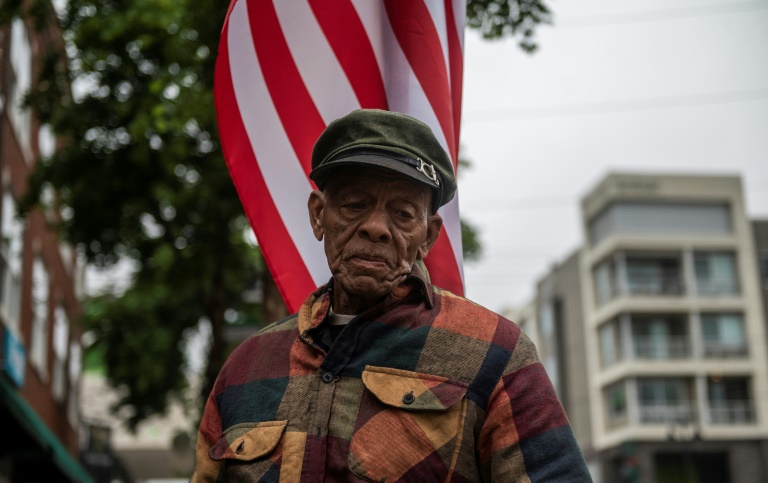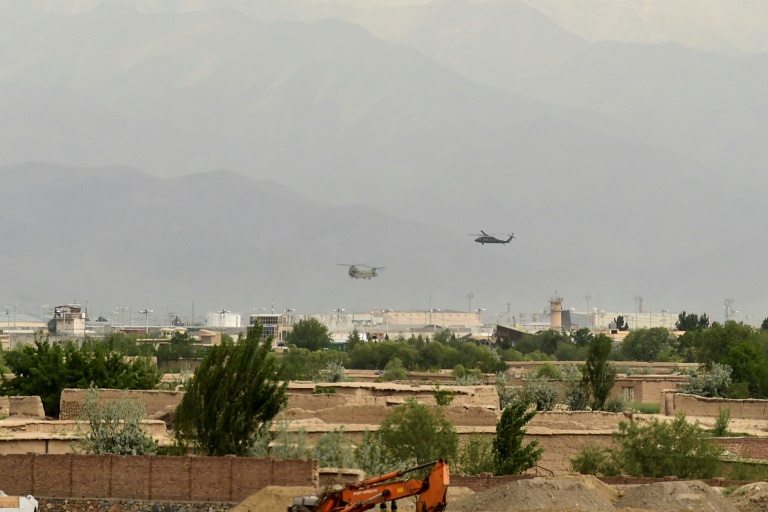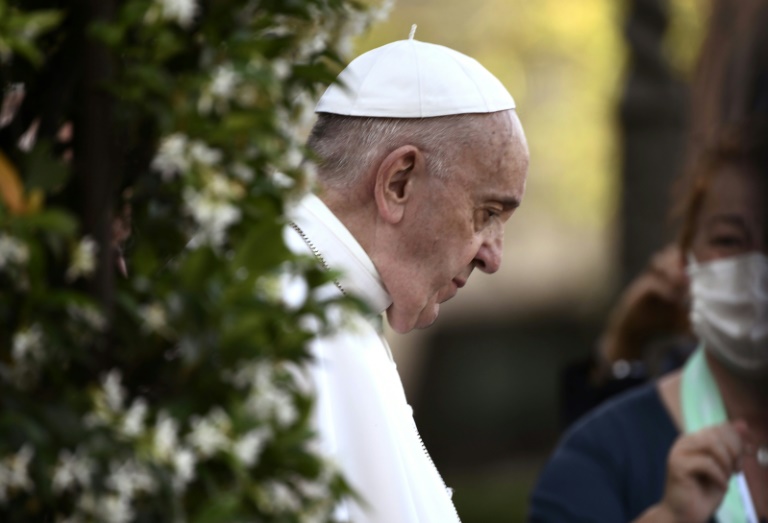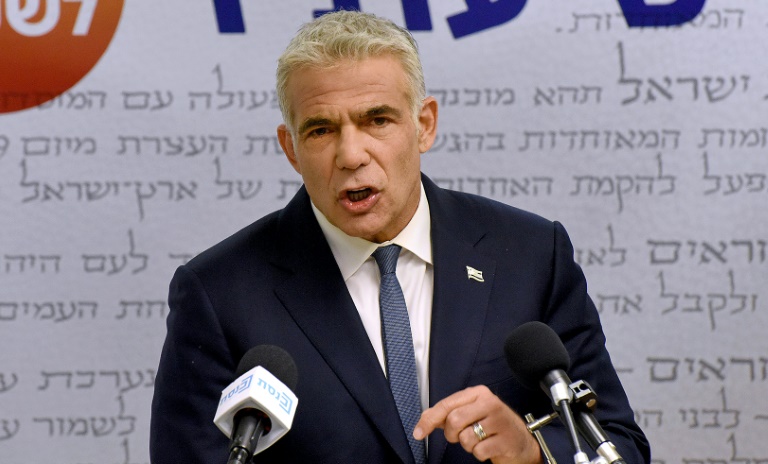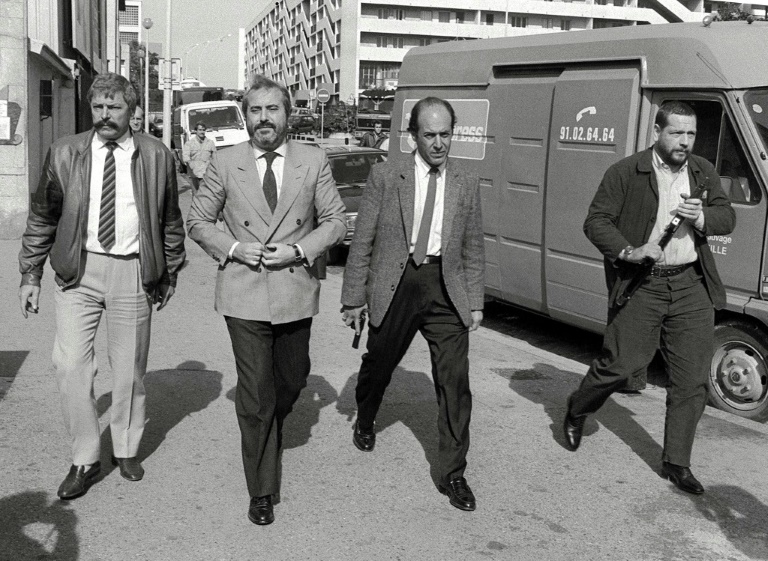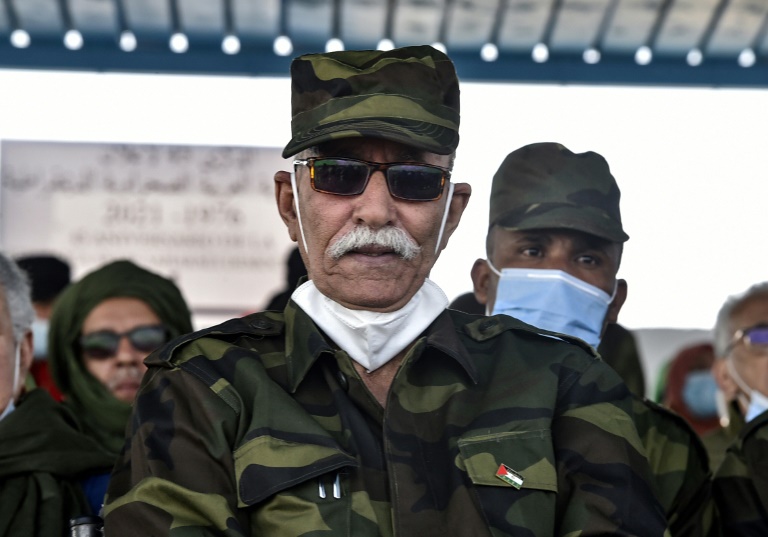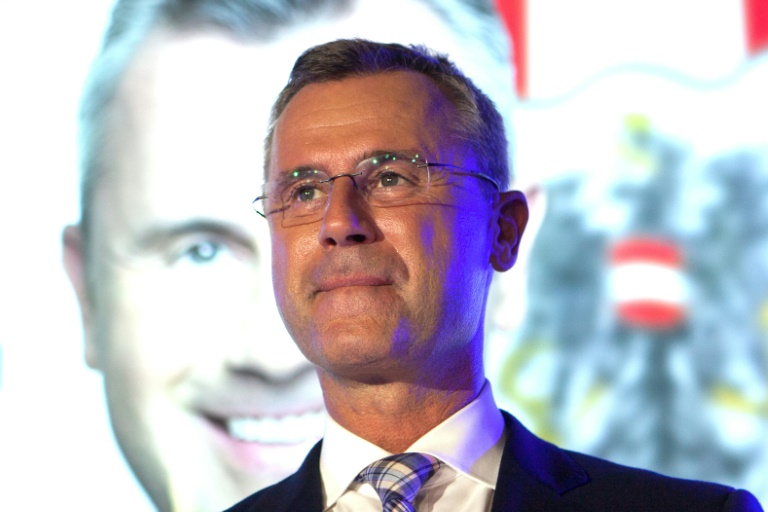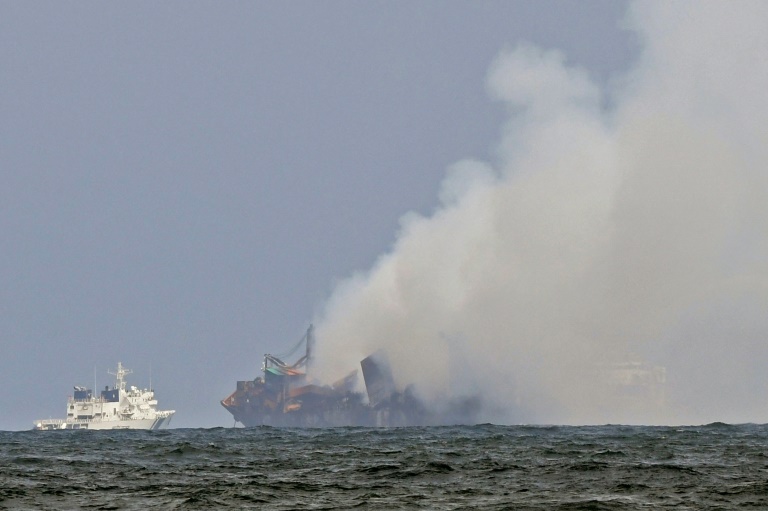Biden to honor Tulsa massacre victims, 100 years on
US President Joe Biden traveled Tuesday to Oklahoma to honor the victims of a 1921 racial massacre in the city of Tulsa, where African American residents are hoping he will hear their call for financial reparations 100 years on.
“I just want him to feel our pain,” said local activist Kristi Williams.
The Democratic leader landed Tuesday afternoon in Tulsa, where he was to mark the centenary by meeting with survivors of one of the worst episodes of racial violence in US history.
Ahead of his arrival, the White House announced a raft of new national initiatives including billions in federal grants to address racial disparities in wealth, home ownership and small business ownership.
Williams, who is descended from some of the massacre victims, wants Biden to “do us right.”
“It’s been 100 years, and we have been impacted negatively, from housing, economic development, our land has been taken,” she told AFP.
“This country, right now has an opportunity to right this wrong.”
On May 31, 1921, a group of Black men had gone to the Tulsa courthouse to defend a young African American man accused of assaulting a white woman. They found themselves facing a mob of hundreds of furious white people.
Tensions spiked and shots were fired, and the African Americans retreated to their neighborhood, Greenwood.
The next day, at dawn, white men looted and burned the neighborhood, at the time so prosperous it was called Black Wall Street.
In 2001, a commission created to study the tragedy concluded that Tulsa authorities themselves had armed some of the white rioters.
The mayor of Tulsa formally apologized Monday for the city government’s failure to protect the community.
As with the economic losses, the human toll is difficult to estimate, but historians say that as many as 300 African American residents lost their lives, and nearly 10,000 people were left homeless.
– ‘It hasn’t changed’ –
Expectations were running high ahead of Biden’s arrival in Tulsa.
“Presidents before should have addressed this, attorney generals and city officials should have addressed this, long before,” said Cleo Harris, a local store owner, told AFP.
Dozens of people gathered under light rain ahead of Biden’s arrival, Greenwood locals rubbing shoulders with people come from out of state for the commemorations.
Khalid Kamau, 44, said he made the journey from Georgia less to mark the massacre than to celebrate what was once “a successful, self sustaining black community.”
“If it existed once, it can exist again,” he said.
In a statement Tuesday, the White House acknowledged that the destruction in Greenwood “was followed by laws and policies that made recovery nearly impossible.”
It cited redlining, which locked Black people out of home ownership; federal highways which were built and cut the community off, and chronic disinvestment in Black businesses — moves which have “echoes in countless Black communities across the country.”
“Because disparities in wealth compound like an interest rate, the disinvestment in Black families in Tulsa and across the country throughout our history is still felt sharply today,” the statement continued.
– Reparations –
In this city in Oklahoma, once a slave-owning state and a stronghold of the Ku Klux Klan, those disparities are clear.
There are marked inequalities between the northern part of Tulsa, which is predominantly Black, and the south, which is mostly white.
Billie Parker, a 50-year-old African American woman, said Tulsa is the same as when she was growing up there. “It hasn’t changed. We’re still separated.”
She said Black residents are still disadvantaged compared to the city’s white residents. Reparations could, she believes, help Greenwood improve its schools.
Reverend Robert Turner, pastor of the historic Vernon AME Church in Greenwood, has launched a petition in support of reparations for the community.
“I hope this country finally does right about the citizens that they have done wrong for centuries, which is African Americans,” he said.
The 2001 commission had recommended that Greenwood residents receive compensation. But so far, reparations have not been paid.
On April 19, some of the last survivors of the Tulsa massacre testified before Congress and asked that the country recognize their suffering.
Beyond financial compensation, city residents are counting on Biden’s visit to bring more attention to a tragedy that long remained taboo.
Tulsa has also begun to excavate mass graves, where many Black victims of the massacre are buried, in an effort to shed more light on the city’s dark past.
For LaShaundra Haughton, 51, the great-granddaughter of some of the survivors, “it is time to heal, it is time to tell the truth, it is time to bring everything to light.”

